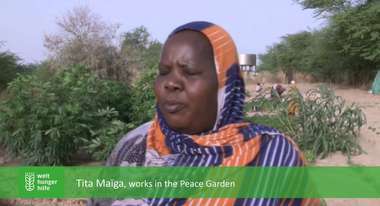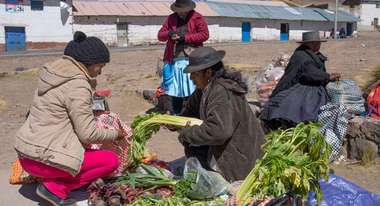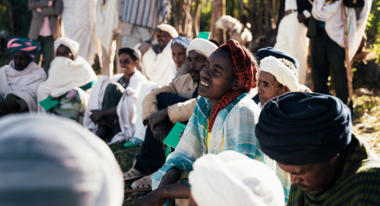Education in Mali
A better future for children: Welthungerhilfe supports mobile schools to enable nomadic children in the regions of Mopti and Ségou in Mali to attend school.
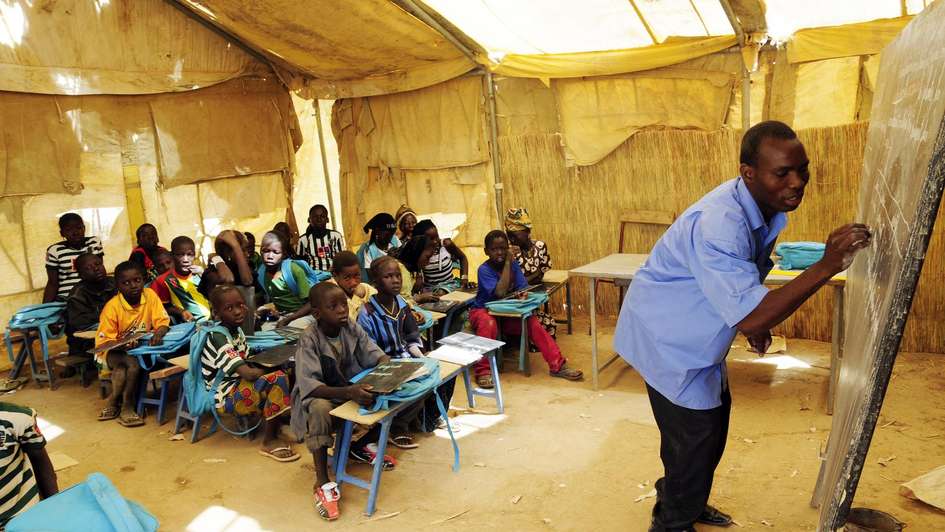
It is not just since the international deployment of UN peacekeepers in northern Mali that the West African nation has been in crisis. Back in the spring of 2012, the government was overthrown and armed groups took power in the north of the country. Hundreds of thousands fled the region during the unrest. Welthungerhilfe also had to cease its work in the north due to the precarious security situation. Welthungerhilfe is monitoring the current developments in Mali and remains in close contact with its partners there.
The project work in the southern Niger Delta is still possible and is being continued. Mobile schools are being supported to enable nomadic children in the regions of Mopti and Ségou to attend school. They have been so well adopted by the nomadic population that 20 new mobile schools are planned.
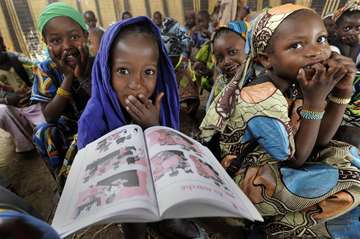
School canteens and mobile schools for boys and girls
For many boys and girls, attending a village school is not possible because, as nomads, they move from one area to the next in the search of pasture and water for their animals. Since 2007, Welthungerhilfe has therefore been promoting the establishment of mobile schools; supporting the education and training of teachers and providing materials for the roaming classrooms.
Together with the World Food Programme, school canteens are being organised in 66 schools. Around 7,400 children and young people receive a hot meal every day. For the often very poor parents, these regular meals are an important incentive to send their children to school. They themselves are often not in the position to feed their children adequately.
The daily lunch is convincing more and more parents to also send their daughters to school, who previously often had to go without education in favour of their brothers, due to financial reasons. In addition, private lessons for schoolgirls are already demonstrating visible results and as they are allowed to take home an extra portion of cooking oil, the enrolment rates for girls have significantly increased.
The teachers travel with the school
At each new location the communities provide at least one tent or a hut for the lessons. The teachers travel with the school. The children can thereby combine their way of life with a good education and gain prospects for a better future.
Welthungerhilfe is also enabling the parents to take part in literacy courses, which is leading to greater understanding from them of the high value of education for their offspring. They are sharing in the costs of the cooks and making their own contribution to the school meals in the form of water and wood.
As more and more children are attending these schools, Welthungerhilfe is planning to expand the number of mobile schools. This will allow many hundreds of children access to education and a better future.
How the Welthungerhilfe helps in Mali
- Building 81 mobile schools for the nomadic and partially-nomadic population
- Education of teachers
- Trainings about school aducation and health
The aid measures are financially supported by the United Nation's World Food Programme (WFP).




